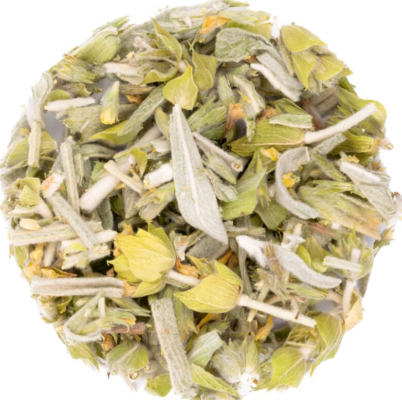Karkade tea, or hibiscus tea, recognizable for its deep red color and cranberry-like taste, is said to have originated in Egypt and has been argued to be the preferred drink of the ancient Pharaos. It is even mentioned in the ancient medical document the Ebers Papyrus (1550 BC) for its medicinal properties.
However, as a herbal tea Karkade is not always recognized as a “real tea” since it does not come from the Camellia sinensis plant. Instead, it is an infusion made from the calyces (casing around the seed pod) of the Hibiscus Sabdariffa flower and is both served hot and cold, and often sweetened with sugur or honey.

There are hundreds of species of hibiscus plants in the world, for instance it’s the state flower for Hawaii. But it is the Hibiscus Sabdariffa that grows in (sub)tropical climates like that of Egypt and Sudan which is used to make Karkade for the local markets. Especially the hot, dry, sunny climate of Northern Egypt proved well-suited for the cultivation of the plant since it ideally requires 13-hours of sun in the first months of growing. Once matured, the calyces are harvested by hand and subsequently dried for several days, before going to market.
In modern times, Karkade remains somewhat of a regional secret but the popularity of herbal teas continues to rise in the Western world, in part because of its perceived health benefits.
More recently, a number of studies tentatively point to a link between hibiscus tea and blood pressure and cholesterol levels. Other potential benefits include that it is high in antioxidants, that it is rich in polyphenols which helps stave of cancer, and that it may boost liver health. However, the studies on the health benefits of hibiscus are still limited and requires future research to make any definite conclusions.



